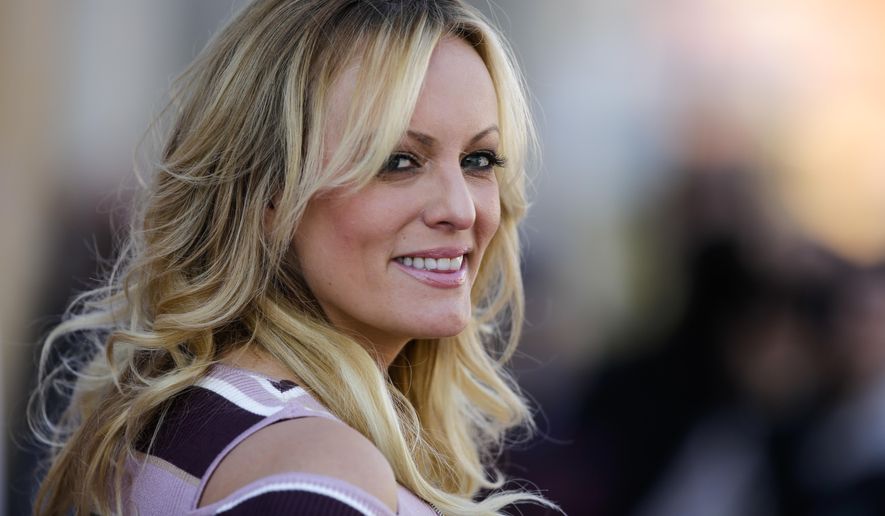A federal judge on Monday dismissed porn star Stormy Daniels’ defamation lawsuit against President Trump, saying the president was well within his First Amendment rights when he took to Twitter to mock her.
Judge S. James Otero said Mr. Trump was using understandable hyperbole when he accused the woman, whose real name is Stephanie Clifford, of a “con job” after she released a sketch artist rendering of a man she said threatened her to stay silent about her alleged sexual encounter with Mr. Trump years ago.
The judge, a Bush appointee, said the back-and-forth was standard politicking from both sides, and he wouldn’t step in to limit the president’s ability to fight back.
“In short, should plaintiff publicly voice her opinions about Mr. Trump, Mr. Trump is entitled to publicly voice non-actionable opinions about plaintiff,” he ruled. “To allow plaintiff to proceed with her defamation action would, in effect, permit plaintiff to make public allegations against the president without giving him the opportunity to respond. Such a holding would violate the First Amendment.”
Judge Otero not only tossed Ms. Clifford’s lawsuit but ordered her to pay Mr. Trump’s legal fees, should he file such a request.
Michael Avenatti, Ms. Clifford’s lawyer, who’s set himself up as a major political opponent of Mr. Trump’s, vowed to appeal.
SEE ALSO: S.E. Cupp cuts down Michael Avenatti on Twitter
He also said the judge’s ruling was “limited,” and insisted they’ll pursue Mrs. Clifford’s other lawsuits against Mr. Trump and his former personal lawyer Michael Cohen, who she says paid her $130,000 in hush money to keep her from talking about an alleged sexual encounter from years ago.
“Trump’s contrary claims are as deceptive as his claims about the inauguration attendance,” Mr. Avenatti said on Twitter.
Still, the legal loss — and demanding she pay Mr. Trump’s lawyer’s fees — is a setback for Ms. Clifford and Mr. Avenatti.
It also means Mr. Trump will not have to face what could have been an excruciating legal discovery process — what the judge called a “fishing expedition” — that could have delved into the workings of the president’s political, legal and even Twitter operations.
The defamation lawsuit stemmed from Ms. Clifford’s decision in April to release a sketch of a man she says threatened her in 2011, warning her to keep quiet.
Mr. Trump took to Twitter the next day to ridicule her: “A sketch years later about a nonexistent man. A total con job, playing the Fake News Media for Fools (but they know it)!”
Ms. Clifford said the president was in effect calling her a liar, and effectively accusing her of making up a crime. She said that was defamation.
Judge Otero, though, said a reasonable observer would have seen the president’s tweet as “rhetorical hyperbole,” or “extravagant exaggeration” used for rhetorical effect.
He also said it matters than Ms. Clifford has set herself up as a political opponent of the president, saying that were she to succeed in her defamation claim it would mean the president would be constrained in going after politicians or other political adversaries.
• Stephen Dinan can be reached at sdinan@washingtontimes.com.




Please read our comment policy before commenting.